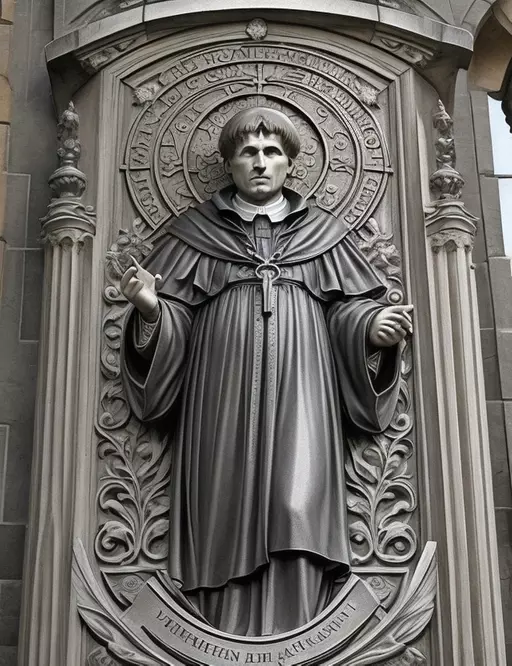Martin Luther's Excommunication: The Turning Point in the Protestant Reformation
January 3, 1521

Martin Luther's Excommunication: The Turning Point in the Protestant Reformation
On January 3, 1521, Martin Luther, the central figure of the Protestant Reformation, faced a pivotal moment in his tumultuous relationship with the Roman Catholic Church. On this day, Luther was officially excommunicated, marking a turning point that would have profound implications for the course of Christianity and the religious landscape of Europe.
Theological Beliefs and Indulgences
Martin Luther's journey toward excommunication was rooted in his theological disagreements with certain practices of the Roman Catholic Church. One significant point of contention was the sale of indulgences, a practice criticized by Luther for its perceived exploitation of believers and departure from core Christian teachings.
The Diet of Worms
The Diet of Worms, a historic assembly held in 1521, became the stage for Luther's confrontation with the authorities of the Catholic Church. Faced with the demand to recant his views, Luther famously declared, 'Here I stand; I can do no other,' refusing to renounce his beliefs. This bold stance sealed his fate and led to the papal bull of excommunication.
Impact on the Protestant Reformation
Martin Luther's excommunication had far-reaching consequences. It marked the formal rupture between Luther and the Catholic Church, solidifying the schism that would give rise to Protestantism. The excommunication fueled the spread of Luther's ideas, inspiring a wave of religious reforms and laying the groundwork for the establishment of Protestant churches.
Legacy of Martin Luther
Martin Luther's legacy extends beyond his excommunication. His translation of the Bible into the vernacular, emphasis on the priesthood of all believers, and advocacy for salvation by faith alone left an enduring impact on Protestant theology. Luther's actions set in motion a transformative period in Christian history and contributed to the diversification of religious practices in Europe.
Commemorating January 3, 1521
January 3, 1521, stands as a watershed moment in the history of Christianity. Martin Luther's excommunication marked not only a personal struggle but also a catalyst for profound changes in religious thought and practice. On this day, we reflect on the courage of an individual whose convictions reshaped the spiritual landscape of Europe.



